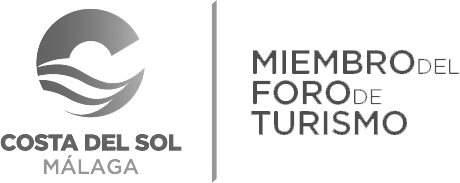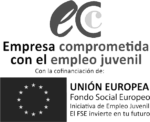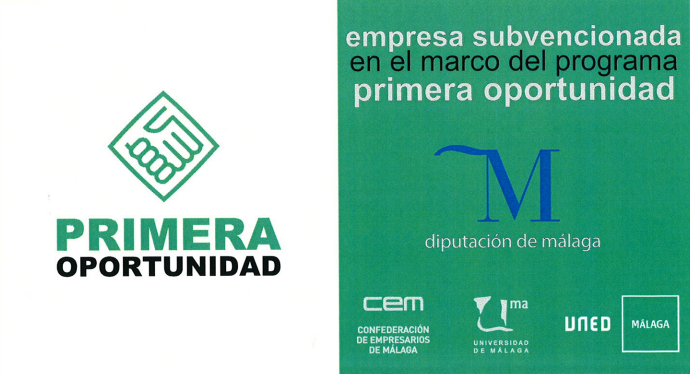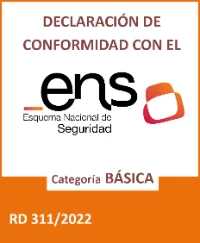- SEO for Hotels: Strategies to Increase Traffic and Bookings
- 1. Introduction to SEO for Hotels
- 1.1 Importance of SEO in the hotel industry
- 2. Fundamentals of SEO for hotels
- Differences between On-Page and Off-Page SEO
- 3. On-Page SEO for Hotels
- 4. Off-Page SEO for Hotels
- 5. Technical SEO
- 6. Local SEO for Hotels
- 7. Tools and Analysis
SEO for Hotels: Strategies to Increase Traffic and Bookings
Discover how search engine optimisation (SEO) can transform your hotel's visibility and success. From keyword research to creating engaging content and link building, this article will guide you through the essential strategies proven to increase organic traffic and bookings in the competitive world of hospitality. Learn from success stories and apply best practices to ensure your hotel stands out in search results.
1. Introduction to SEO for Hotels
1.1 Importance of SEO in the hotel industry
SEO (Search Engine Optimisation) is crucial in the hospitality industry because:
- Online VisibilityGood SEO ensures that hotels appear in the first search results, which increases the likelihood that potential customers will find them.
- Competition: The hotel industry is highly competitive. Hotels that optimise their SEO have an advantage over those that do not.
- Cost-effectivenessIn the long term, SEO can be a more cost-effective strategy compared to paid advertising, as it generates sustained organic traffic.
- Trust and CredibilityUsers tend to trust organic results more than paid ads, which can translate into a higher conversion rate.
1.2. Objectives of the Session
- Understanding the Importance of SEOMaking sure hotel managers understand why SEO is vital to their business and how it can impact their revenue.
- Providing Basic KnowledgeEquip managers with the fundamental knowledge of SEO, both on-page and off-page.
- Strategy ImplementationTeaching practical and effective SEO strategies that can be implemented on their websites and digital platforms.
- Use of SEO ToolsFamiliarise yourself with the tools and resources available to monitor and improve your SEO efforts.
- Future TrendsPreparing for future SEO trends and how to adapt to changes in search algorithms.
2. Fundamentals of SEO for hotels
What is SEO and how does it work?
SEO, or Search Engine Optimisation, is the process of optimising a website to improve its visibility on search engines such as Google. The goal is to appear at the top of search results for relevant keywords, which increases the website's organic traffic.
How SEO works:
- Tracing and IndexingSearch engines use bots or spiders to crawl and index the content of web pages.
- Search AlgorithmsSearch engines use complex algorithms that analyse various factors to determine the relevance and quality of a web page.
- RankingBased on algorithms, search engines rank web pages in search results according to their relevance to the user's query.
Differences between On-Page and Off-Page SEO
SEO On-Page:
- Content: Create quality, relevant and keyword-optimised content.
- HTML tags: Optimisation of titles, meta descriptions, headings and image alt tags.
- Site architectureImproving the site structure and navigation to make it user and search engine friendly.
- Site Speed: Optimise page loading speed to improve the user experience.
- Mobile Optimisation: Ensure that the website is compatible with mobile devices.
Off-Page SEO:
- Link BuildingGetting high quality links from other websites, which indicates to search engines that your site is trustworthy and authoritative.
- Content Marketing: Promotion of content on other platforms to increase reach and attract links.
- Social NetworkingSocial media: Use of social media to increase visibility and drive traffic to the website.
- Brand MentionsGetting your brand mentioned in articles, blogs and other relevant websites.
On-Page SEO focuses on improving the internal elements of the website, while Off-Page SEO focuses on increasing the authority and relevance of the site through external factors. Both are essential for an effective SEO strategy.
3. On-Page SEO for Hotels
Hotel Sector Specific Keyword Research
Keyword research is essential to identify terms and phrases that your potential customers are searching for. In the hotel sector, this includes:
- Location keywordsTerms specific to the city, neighbourhood or region where the hotel is located.
- Hotel attributesKey words related to hotel characteristics such as "hotel with swimming pool in Torremolinos" or "hotel near the beach".
- Season and eventsTerms that vary according to the season or specific events, such as "hotel for Easter in Andalusia" or "accommodation for the Malaga Festival". Tools such as Google Keyword Planner, Ahrefs or SEMrush can be useful to identify and analyse these keywords.
Optimisation of Titles and Meta Descriptions
- TitlesThey should be attractive, relevant and contain the main keywords.
Example: "Luxury hotel in Torremolinos with sea view". - Meta DescriptionsThey provide a brief summary of the content of the page and should be persuasive, including calls to action.
Example: "Discover the best hotel in Torremolinos, perfect for your family holidays. Book now and enjoy incredible sea views".
URL Structure and Relevance
- Clean and Readable URLsURLs should be clear and descriptive, avoiding special characters or unnecessary codes.
Example: hotel.com/habitaciones-lujo-torremolinos. - Includes KeywordsIncorporating relevant keywords in URLs can improve your visibility in search engines.
Example: hotel.com/eventos-bodas-torremolinos.
Quality Content: Blogs, Travel Guides, Services Pages
- BlogsCreate relevant and useful content for visitors, such as travel tips, local attractions or guest experiences.
- Travel Guides: Providing detailed guides to the region, including recommendations for restaurants, activities and places of interest.
- Services PagesDescribe in detail the services offered by the hotel, such as spa, gym, restaurants, and make sure that each page is optimised with relevant keywords.
These On-Page SEO strategies will help improve the visibility of the hotel's website, attracting more organic traffic and potentially increasing bookings.
4. Off-Page SEO for Hotels
Link Building: Strategies and Best Practices
Link building is the process of getting links from other websites to your website. These links act as votes of confidence and can significantly improve your authority and search engine ranking.
- Content StrategyCreate exceptional content that others will want to link to, such as detailed travel guides, case studies or blogs about local experiences.
- Guest PostingCollaborate with other travel blogs or websites to publish articles that include links to your site.
- Local Directories and ListingsMake sure your hotel is listed on local directories and review sites such as TripAdvisor, Yelp and Google My Business, with links back to your site.
- Broken LinksFind broken links on relevant sites and offer your content as a replacement.
Content Marketing and Social Media
- Blogs and Articles: Regularly publish relevant and high quality content on the hotel blog. This not only attracts direct traffic, but can also generate natural links.
- Social NetworkingUse platforms such as Instagram, Facebook and Twitter to share content, promotions and hotel news. Social media can amplify your reach and generate additional traffic.
- Infographics and VideosCreate engaging visual content and share it on relevant social platforms and websites. Visual content is highly shareable and can attract links and mentions.
Collaborations and Mentions in Blogs and Travel Sites
- Collaborations with InfluencersWork with travel bloggers and influencers to write about their experience at your hotel. This not only generates links, but also improves your visibility and reputation.
- Press and MediaSend press releases about events, improvements or hotel news to local media and travel sites. Media coverage can generate valuable links and mentions.
- Forums and Online CommunitiesParticipate actively in travel forums and communities where you can share your knowledge and link to your content where relevant.
These off-page SEO strategies will help build a strong online presence and improve search engine rankings, attracting more visitors and bookings for the hotel.
5. Technical SEO
Loading Speed and its Impact on Ranking
- Importance of Speed: Search engines, such as Google, consider page loading speed as a crucial ranking factor. Pages that load quickly improve the user experience and tend to rank higher in search results.
- Image OptimisationCompress and resize images without sacrificing quality to reduce loading times.
- Resource Minification: Reduce the size of CSS, JavaScript and HTML files to speed up loading time.
- Use of CDNsImplement a Content Delivery Network (CDN) to distribute your website files across global servers, improving speed for users in multiple locations.
Site Architecture and Navigation
- Logical StructureCreate a logical and easy-to-navigate site structure, with a clear hierarchical layout that makes it easy for search engines to crawl and index your content.
- Clean URLsUse friendly and descriptive URLs that include relevant keywords. Avoid long and complicated URLs with numbers and special characters.
- SitemapCreate and maintain an up-to-date XML sitemap to help search engines understand the structure of the site and find all important pages.
- Internal LinkingUse internal links to connect related content within the site, helping search engines to crawl and index additional pages, while improving the user experience.
Optimisation for Mobile Devices
- Responsive DesignEnsure that the website is fully responsive, i.e. that it automatically adapts to different screen sizes and devices. This includes the design of the user interface and the layout of the content.
- Mobile Usability TestingRegular testing to ensure that navigation and use of the site on mobile devices is smooth and trouble-free. Tools such as Google Mobile-Friendly Test can be useful to identify and fix problems.
- Priority to ContentOptimise content for mobile, ensuring that the most important elements are accessible and visible without a lot of scrolling. This improves the user experience and is SEO-friendly.
- Mobile Speed OptimisationLoading speed is even more crucial on mobile. Implementing AMP (Accelerated Mobile Pages) can help to significantly improve loading times on mobile devices.
Implementing these technical SEO tactics can significantly improve your website's search engine performance, ensuring that both users and search engines have a positive experience.
6. Local SEO for Hotels
Google My Business optimisation
- Creation and VerificationMake sure your hotel is listed on Google My Business and that the listing is verified.
- Complete and Accurate InformationProvides complete and up-to-date information about your hotel, including address, telephone number, opening hours, photos and description.
- Reviews and RatingsEncourage customers to leave reviews and respond to them, both positive and negative, to improve your hotel's visibility and credibility.
Local Directory Listings
- NAP ConsistencyMake sure that the Name, Address and Phone (NAP) of your hotel are consistent in all local directories and review sites.
- Relevant ListingsSign up to relevant local directories such as TripAdvisor, Yelp and other travel review sites.
Local Keyword Optimisation
- Location KeywordsUse keywords that include the location of your hotel, such as "hotel in [city]" or "accommodation in [neighbourhood]".
- Local ContentCreate content that highlights local attractions, events and activities near your hotel, which can attract both tourists and local residents.
Maps and Geolocation
- Google MapsMake sure your hotel appears correctly on Google Maps and other mapping services.
- Geolocation on the websiteEmbed maps on your website pages and provide clear directions so visitors can easily find you.
Local Promotions and Offers
- Discounts and PackagesOffer special promotions and packages for local visitors or tourists, highlighting them on your website and social media profiles.
- Local CollaborationsCollaborate with local businesses such as restaurants, tour operators and attractions to offer joint packages and increase visibility.
Adding this focus on Local SEO will help attract customers looking for specific options in your area and improve your hotel's local presence in search engines.
7. Tools and Analysis
Essential SEO Tools
For an effective SEO strategy, having the right tools is crucial. Here are some of the most important ones:
- Google Analytics: Allows you to track and analyse your website traffic. You can see where your visitors come from, how they interact with your site, and measure conversions.
- Google Search ConsoleThis free tool from Google helps you monitor and maintain your site's presence in search results. You can see which keywords are driving traffic to your site, troubleshoot crawl issues, and submit sitemaps.
- SEMrushAn all-in-one tool for keyword research, competition analysis, site audits and ranking tracking. It is especially useful for finding link building opportunities and optimising content.
- AhrefsKnown for its powerful backlink analysis, Ahrefs also offers tools for keyword research, site audits, and content analysis.
- Moz ProIncludes tools for keyword research, ranking tracking, site audits, and backlink analysis. Moz also offers a free toolbar that displays SEO metrics as you browse.
- Yoast SEOA WordPress plugin that helps you optimise your content as you create it. It offers suggestions to improve readability, keyword usage, and content structure.
How to Monitor and Measure the Success of SEO Strategies
- Organic TrafficUse Google Analytics to monitor organic traffic to your site. Look at trends over time and compare with previous periods to see if your SEO efforts are paying off.
- Keyword PositioningTools like SEMrush and Ahrefs allow you to track the ranking of your target keywords. Evaluate if you are gaining positions for important terms.
- Conversion RateIt's not enough to attract traffic; you must also convert visitors into customers. Use Google Analytics to track conversions and analyse which pages are generating the most desired actions.
- Bounce Rate and Time on SiteMonitor the bounce rate and the average time users spend on your site. High bounce rates or short visit times may indicate problems with user experience or content relevance.
- Backlinks and Referring DomainsUse Ahrefs or Moz to track links pointing to your site. An increase in the quantity and quality of backlinks is usually a good indicator of the success of your link building strategies.
- Site AuditsPerform regular audits with tools such as SEMrush, Ahrefs or Moz to identify and fix technical issues that may be affecting your SEO performance. This includes crawl issues, duplicate content, and load speed.
- Google Search Console Report: Regularly review Google Search Console reports to see how your site is performing in search results, fix crawl errors, and see which terms are driving traffic to your site.









